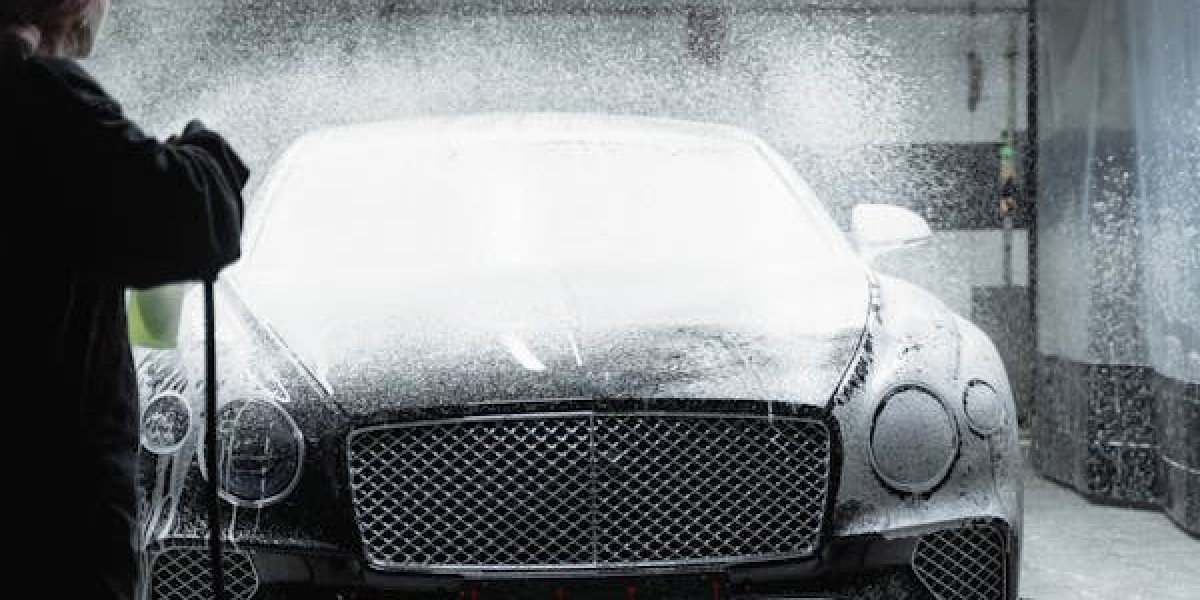DIY Car Wash: 7 Effective Alternatives to Car Soap
Keeping your car clean is essential for maintaining its appearance and preventing damage from dirt, grime, and road debris. While commercial car soaps are specially formulated to remove dirt without harming the paint, there are times when you might run out of car soap and need a quick alternative. Fortunately, several household products can serve as effective substitutes while still providing a thorough clean. In this guide, we’ll explore seven practical alternatives to car soap, ensuring you can wash your vehicle without compromising its shine or finish. Whether you're looking for budget-friendly options or natural cleaning solutions, these alternatives will help you achieve a spotless car wash. Learn how to clean your car effectively with these DIY options and keep your vehicle looking its best—brought to you by Uni Blogging.
1. Dish Soap: A Common but Cautious Choice
Dish soap is one of the most commonly used alternatives to car soap. It's designed to cut through grease and remove dirt, making it effective for cleaning your vehicle. However, dish soap can also strip away protective wax layers, leaving your car vulnerable to environmental damage.
How to Use It:
- Mix a few drops of dish soap with a bucket of warm water.
- Use a microfiber cloth or sponge to gently clean your car’s surface.
- Rinse thoroughly with clean water to remove all soap residue.
Best For: Occasional use when no other option is available. To protect your car's wax layer, apply a fresh coat after washing.
2. Baby Shampoo: A Gentle Cleaning Solution
If you're looking for a milder option, baby shampoo is an excellent choice. It’s designed to be gentle on sensitive skin, which means it won’t damage your car’s paint.
How to Use It:
- Add a small amount of baby shampoo to a bucket of water.
- Lather up with a sponge and clean the car’s exterior.
- Rinse with clean water and dry with a microfiber towel.
Best For: Light cleaning and frequent washes without stripping protective coatings.
3. White Vinegar and Water: A Natural Degreaser
White vinegar is a fantastic natural cleaner known for cutting through grease and grime. While it should be used carefully, it works well when diluted properly.
How to Use It:
- Mix one part white vinegar with three parts water in a spray bottle.
- Spray the solution on your car’s exterior and wipe it with a microfiber cloth.
- Rinse thoroughly to prevent any acidic residue from staying on the paint.
Best For: Removing water spots, bird droppings, and road grime without using harsh chemicals.
4. Baking Soda and Water: An Eco-Friendly Cleaner
Baking soda is a non-toxic cleaning agent that effectively removes dirt and stains. When mixed with water, it forms a gentle scrubbing paste that is safe for your car's paint.
How to Use It:
- Mix ¼ cup of baking soda with a gallon of water.
- Use a sponge or cloth to apply the mixture and gently scrub the surface.
- Rinse with clean water to remove any residue.
Best For: Spot cleaning tough stains and neutralizing odors.
5. Laundry Detergent: A Sudsy Alternative
Some mild liquid laundry detergents can be used to clean your car, but they must be free of harsh chemicals and bleach.
How to Use It:
- Mix a few drops of mild detergent in a bucket of water.
- Use a soft sponge to wash your car’s surface.
- Rinse thoroughly to ensure no soapy residue remains.
Best For: A budget-friendly alternative when car soap isn’t available. Avoid using too much detergent, as it can leave streaks.
6. Hair Conditioner: Shine and Protection in One
Hair conditioners often contain lanolin, a substance that helps add shine and a protective layer to your car's surface.
How to Use It:
- Mix a tablespoon of hair conditioner with a bucket of water.
- Wash your car with a soft cloth or sponge.
- Rinse well and dry with a microfiber towel for a glossy finish.
Best For: Enhancing shine and providing a mild water-repellent effect.
7. Castile Soap: A Plant-Based Cleaning Option
Castile soap is a natural, vegetable-based soap that is gentle yet effective for washing cars. Unlike regular dish soap, it does not contain harsh chemicals that strip wax.
How to Use It:
- Add a few drops of castile soap to a bucket of water.
- Wash your car with a sponge or cloth.
- Rinse thoroughly to remove all soap residue.
Best For: A natural and biodegradable cleaning solution safe for the environment.
Tips for a Successful DIY Car Wash
To make sure your car wash leaves your vehicle spotless and streak-free, follow these tips:
- Use Two Buckets: One for soapy water and one for rinsing your sponge or cloth. This helps prevent dirt from spreading back onto your car.
- Wash from Top to Bottom: Start at the roof and work your way down to avoid dirt streaks.
- Use a Microfiber Towel for Drying: This prevents water spots and keeps the surface smooth.
- Avoid Washing in Direct Sunlight: Heat can cause water to evaporate quickly, leaving streaks behind.
Conclusion
Cleaning your car without traditional car soap is entirely possible with these seven effective alternatives. Whether you use dish soap, baby shampoo, vinegar, or even hair conditioner, each option offers unique benefits for maintaining a clean vehicle. Keep in mind that some substitutes, like dish soap and vinegar, should be used sparingly to avoid stripping your car's protective coatings. By choosing the right cleaning solution and following proper washing techniques, you can achieve a spotless and well-maintained car anytime, anywhere.
For more practical car care tips, stay tuned to Uni Blogging!



